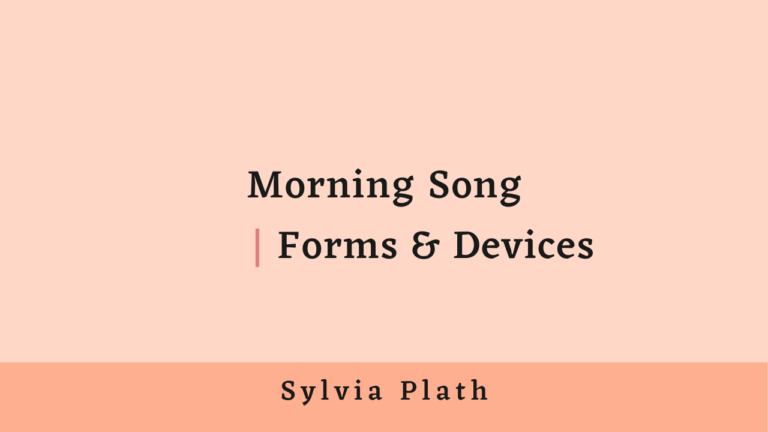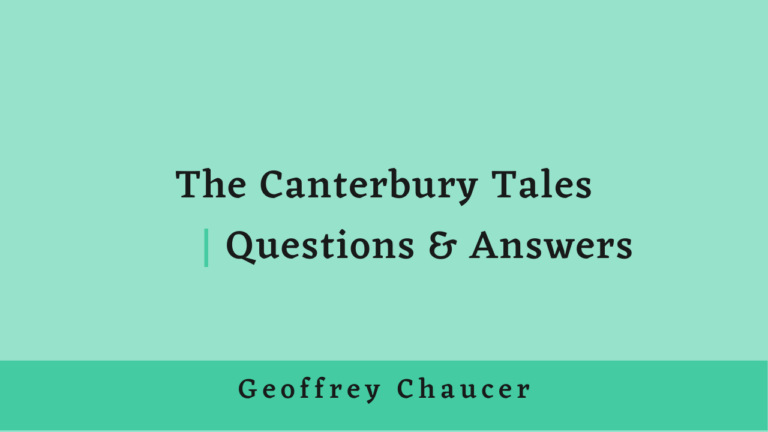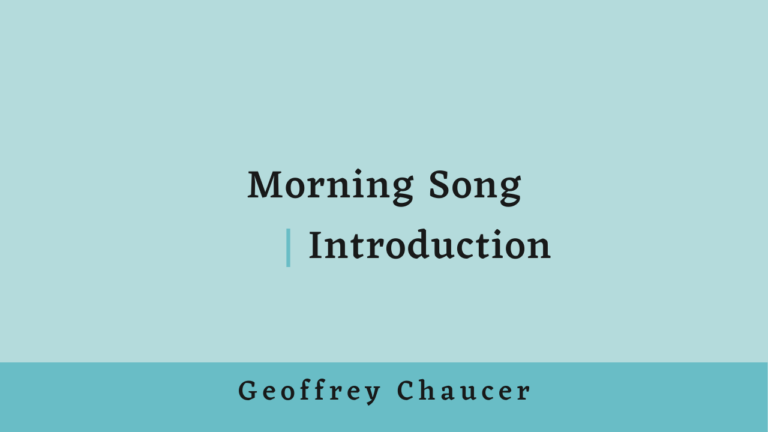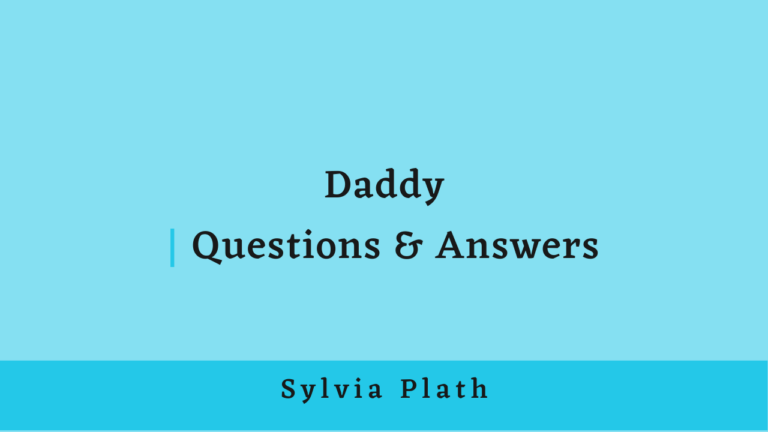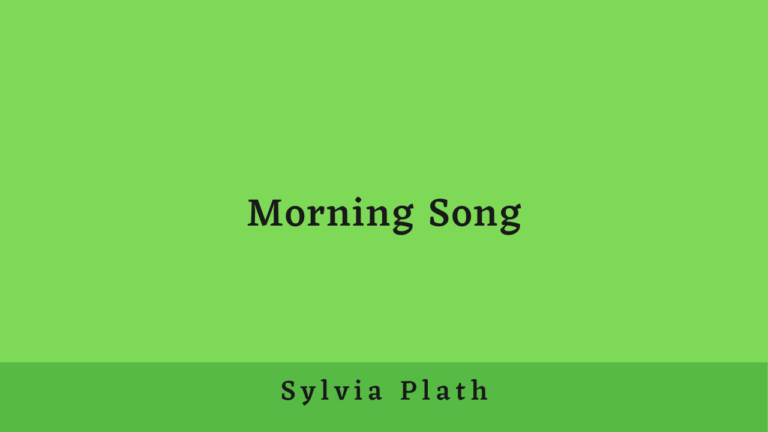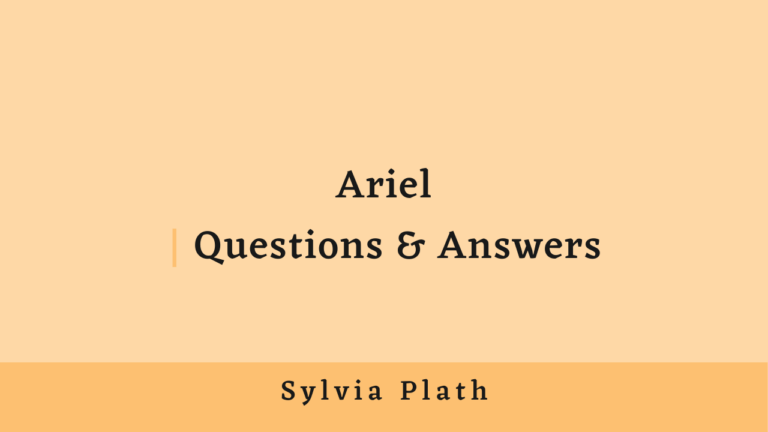Q.1 Write a brief critical note on the theme of alienation and its overcoming in Plath’s “ The Morning Song”.
The main theme in Sylvia Plath’s “Morning Song” is the feeling of alienation and how that feeling comes to an end. This poem is about a mother’s instinct and how it develops in different random thoughts. Plath talks about becoming a mother without the usual sentimentality. She shows that for a woman, especially an ambitious poet like herself, motherhood is not just about giving birth. It involves learning new behaviors. The mother is as new as the child in her experience after giving birth to a new one. Readers can appreciate Plath’s honesty in dealing with this topic. Plath’s honesty in dealing with the feeling of huge gap with her subject is highly appreciable “I’m no more your mother / Than the cloud.” This sense of alienation is overcome by clearly describing these feelings. Instinct also plays a role. The speaker finds herself listening to the child’s sounds. This is not self-willed or under her control. She follows her instinct: “One cry, and I stumble from bed.” In the end, she feels rewarded. The sense of being disconnected is overcome through her bond with her baby. The baby “serenades” her with a “morning song,” and a connection is made through language, the most human act.
The main theme of “The Morning Song” is alienation and how to overcome it. A woman’s poem, it’s about maternal instinct and its awakening. Plath doesn’t sentimentalize a subject – becoming a mother – that’s often treated superficially. A woman – certainly an ambitious poet like Plath – doesn’t become a mother just by giving birth. New behavior is learned. The being of the mother is as new as the being of the child. We can appreciate Plath’s honesty about her subject. It takes a certain amount of courage to admit to a huge lack: I’m no more your mother/Then the cloud. The alienation in the poem is overcome by such precise description of feelings. Instinct has a part to play too. The speaker finds herself listening to the child’s sounds. This isn’t self-willed or under her control. She follows her instinct: One cry, and I stumble from bed. In the end she’s rewarded. Alienation is overcome in her connection to her baby. Her own child serenades her with a “morning song” and a bond is formed through language, the most human act.
The third tercet is full of complicated imagery and introduces a second theme: the speaker’s awareness of her child as erasing her as a poet: “I’m no more your mother/Than the cloud that distills a mirror to reflect its own slow/Effacement at the wind’s hand.” Can a woman be both mother and famous poet? Plath, writing in 1961, had few predecessors who managed to do both. She’s dealing with one of the big questions for women poets of the 20th century. If mothering takes up all her time, will she still be the poet-artist she wants to be? This poem answers her question. And the happy ending brings in a new singer and a mother proud of her child’s vocal spirit.

